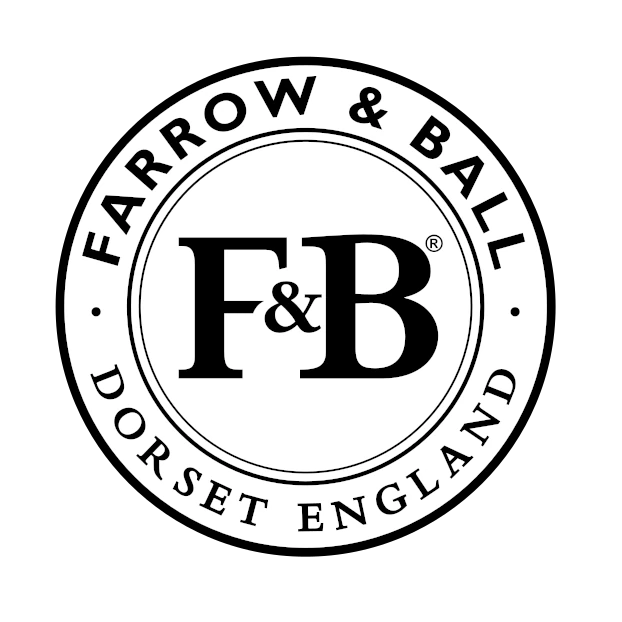Little Greene Invisible Green 56
| Official page: | Invisible Green 56 |
| Code: | 56 |
| Name: | Invisible Green |
| Brand: | Little Greene |
| Collections: | Colours of England, Green |
What color is Little Greene Invisible Green?
Made popular by the landscape gardener Humphry Repton who recommended it for fencing and railings so that they would blend better with the background vegetation. Invisible Green is a deep shade that is reminiscent of the outdoors, bringing calm to your interior.
Invisible Green for bedroom (4 photos)
We’ve hand-picked a beautiful collection of photos of this amazing green shade used in real bedrooms. Take a look and imagine how this wonderful warm dark paint color could transform your own bedroom space.
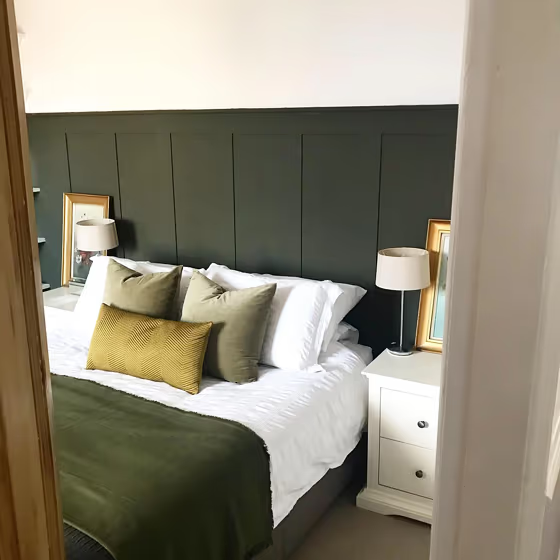
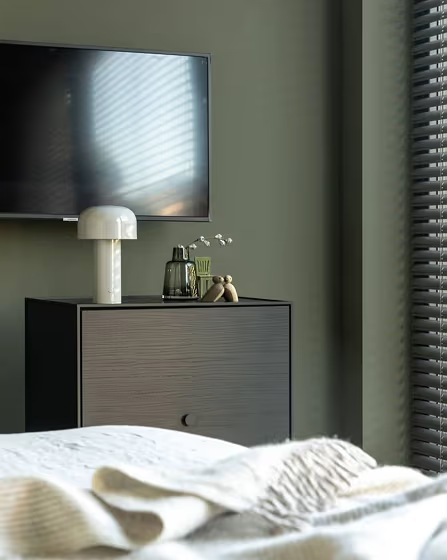
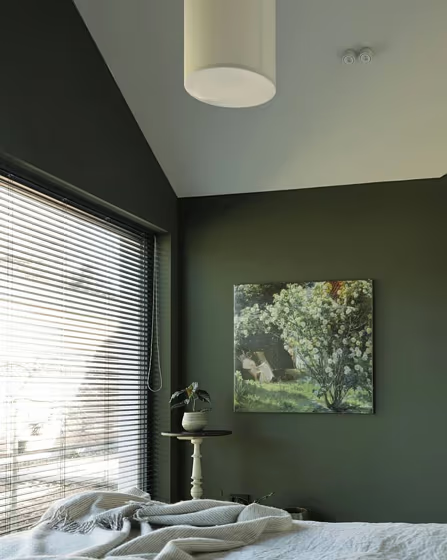
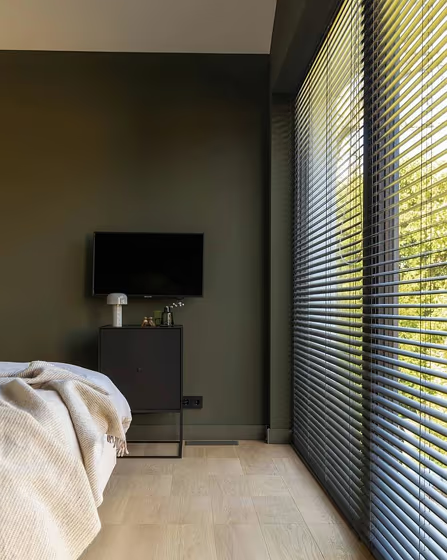
Invisible Green for living room (2 photos)
Check out this stunning Dark color used in real living rooms. Explore how this green shade can create a unique space
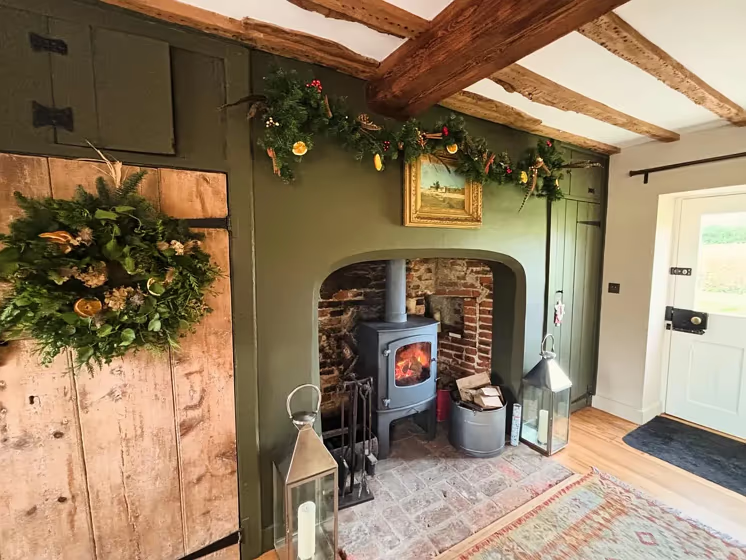
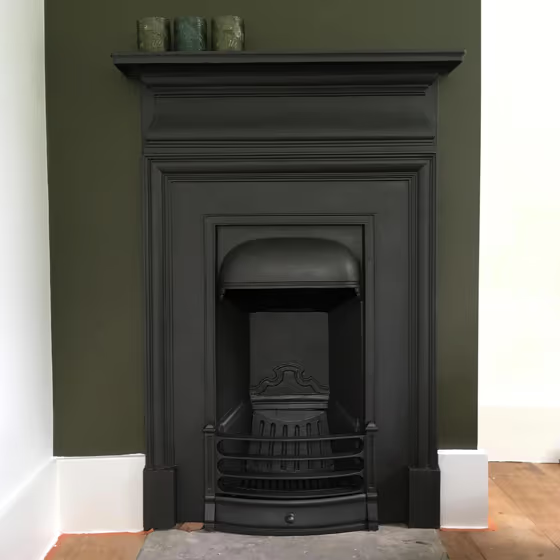
Little Greene 56 for bathroom (3 photos)
Looking for inspiration for your dream bathroom renovation project? These beautiful handpicked photos will show you this delightfully warm Dark green real bathrooms.
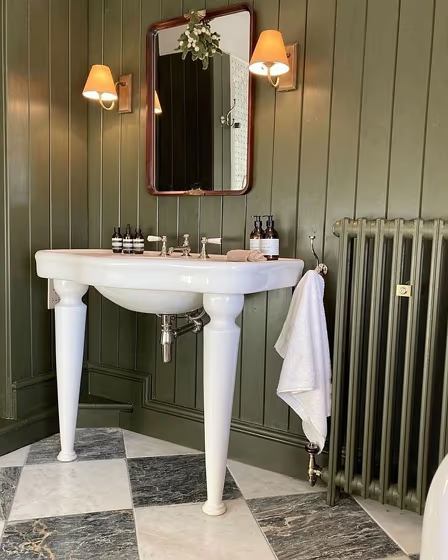
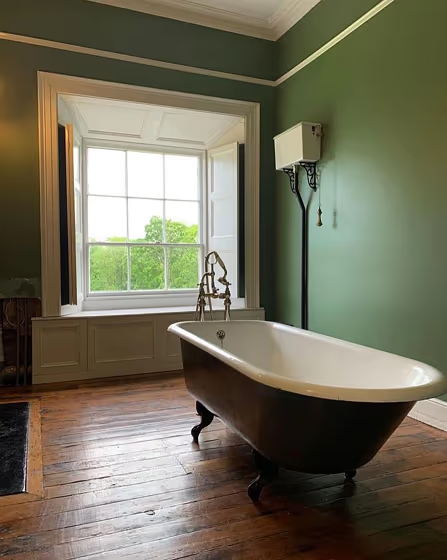
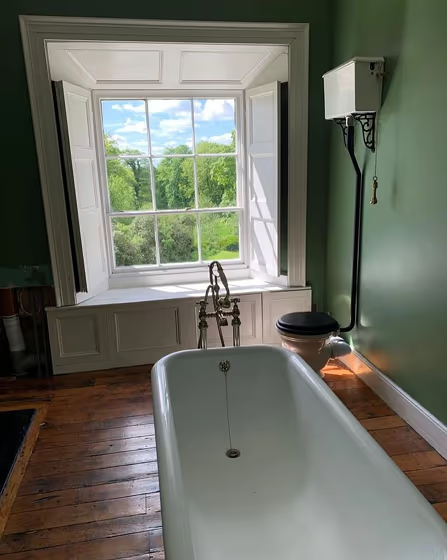
Little Greene 56 on kitchen cabinets (2 photos)
Want a stylish kitchen? View real-life photo examples of this fascinating warm green hue is paired with backsplashes, countertops, and hardware.
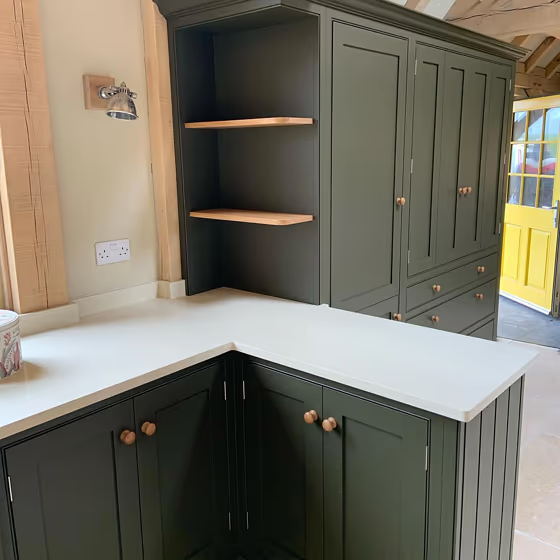
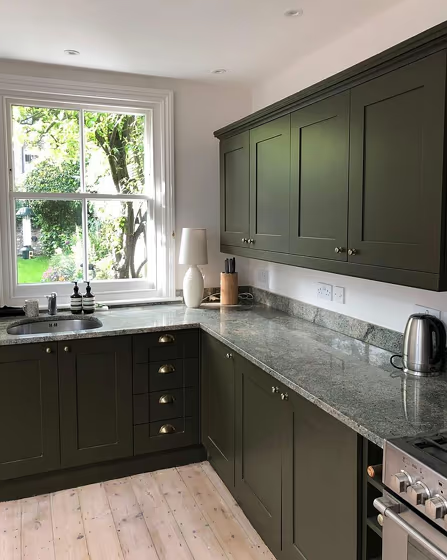
Little Greene Invisible Green reviews
View the photos of real spaces painted with this green that were not included in specific categories.Close-ups, painted furniture, storages and dressers, hallways, stairs and ceilings.
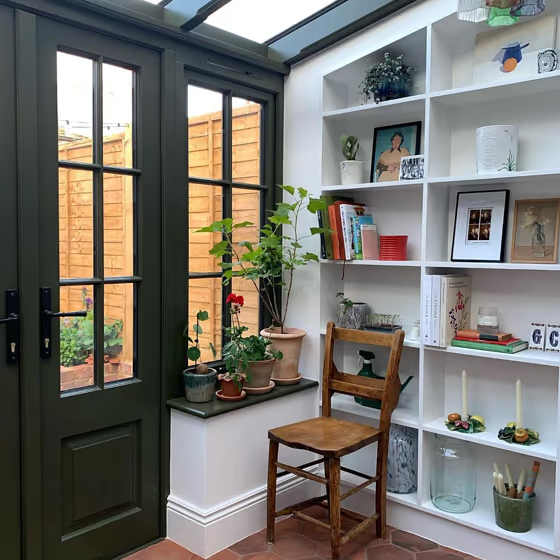
Try before you buy
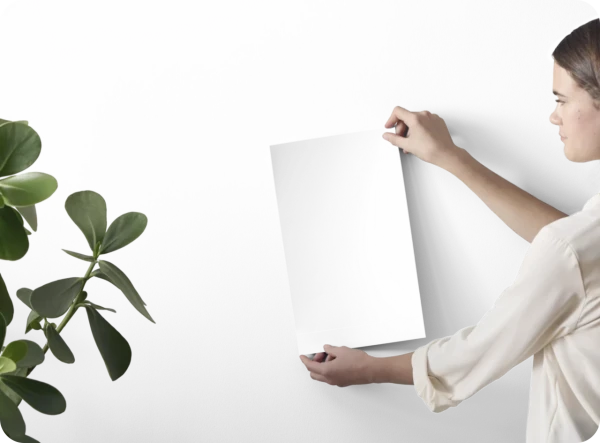

100% accurate
reusable paint samples

Peel, stick,
and repeat

Twice painted
with real paint

Next day
delivery
What are Little Greene Invisible Green undertones?
Invisible Green has a clear yellow undertone based on its position in the color space. We identify undertones by isolating the pure hue (separating it from lightness and saturation), which avoids distortions caused by tints, tones, and shades.
This method is generally more reliable than judging undertones on a white background.
HEX value:
#2F2B14
RGB code:
47, 43, 20
Is Little Greene Invisible Green 56 cool or warm?

With a hue of 51°, this dark green reads warm on the HSL color wheel.
56 Invisible Green HSL code: 51, 40%, 13%
Hue - degree on a color wheel from 0 to 360. 0 is red, 120 is green, and 240 is blue.
Saturation is expressed as a percentage. At 0%, it appears as a shade of grey, and at 100%, it is in full color.
Lightness is also a percentage value. 0% is black, and 100% is white.
How light temperature affects Invisible Green
Natural Lighting. During the day, natural light shifts from about 2000 K at sunrise/sunset to 5500–6500 K at noon.
In addition, natural‑light temperature depends on its direction:
| Direction of sunlight | Visible temp. | Hue | Duration |
|---|---|---|---|
| North | Cool | Bluish | All day |
| East | Warm | Yellow | Before noon |
| West | Warm | Orange‑red | After noon |
| South | Warm | Orange‑yellow | All day |
Artificial Lighting. When choosing bulbs, pay attention to their color‑temperature (Kelvins).
Use the slider to see how this dark green shade looks under different lighting:
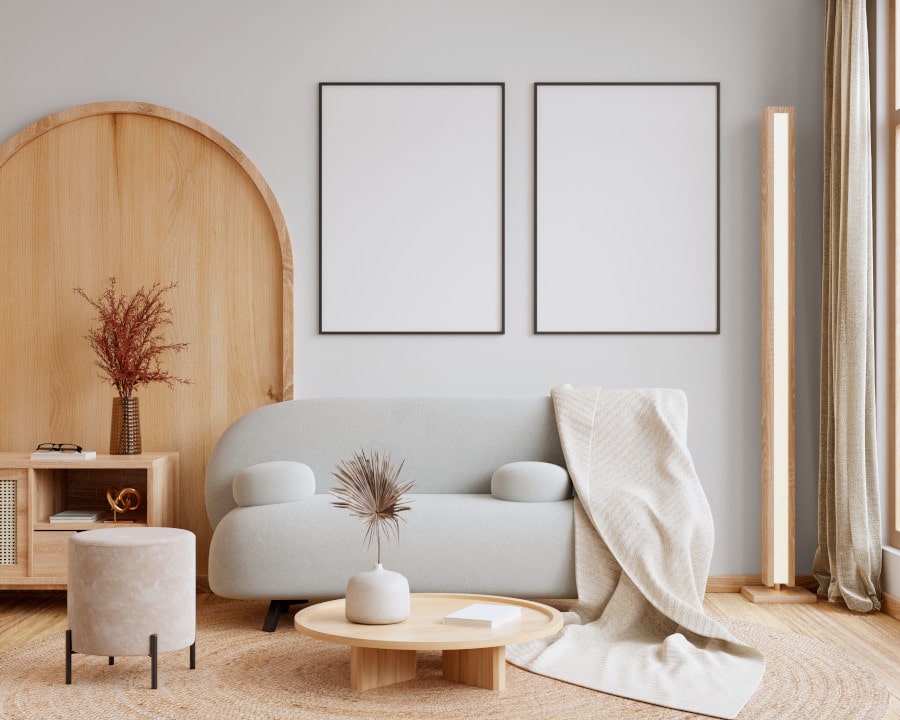
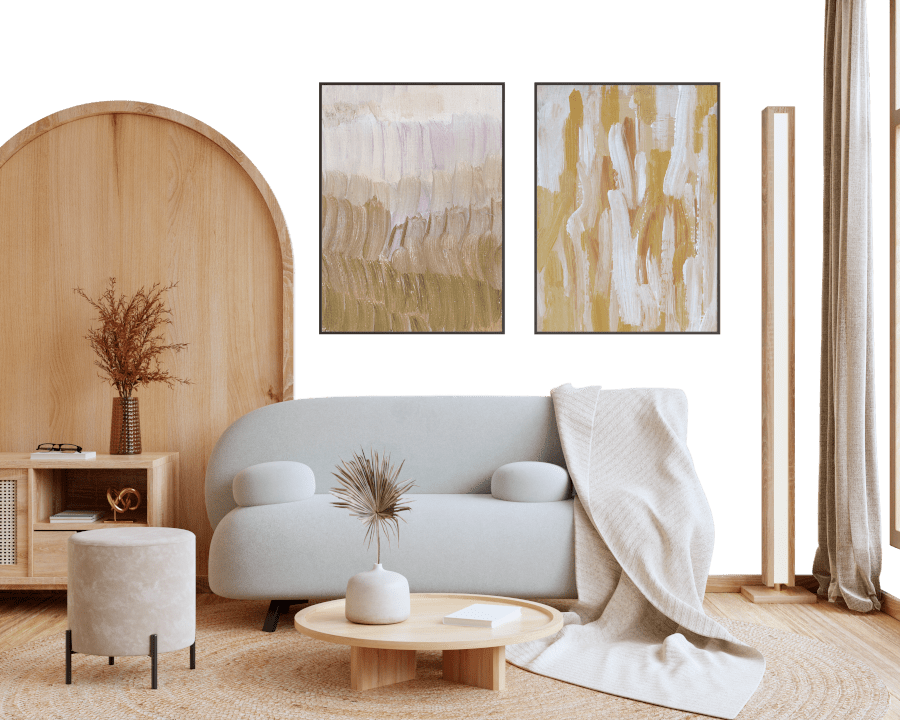
4000K
Coordinating colors.
Colors that go with Little Greene Invisible Green:
Complementary color scheme

This color scheme is a combination of two shades that are opposite each other on the color wheel. The high contrast between these colors creates a vibrant and dynamic visual effect. For the color Invisible Green with a orange hue, complementary colors are those with a blue hue close to 231, such as Little Greene Juniper Ash and Pale Lupin.
Color codes
We have collected almost every possible color code you could ever need. To copy the code, just click the icon to the right of it.
| Format | Code | |
|---|---|---|
| HEX | #2f2b14 | |
| RGB Decimal | 47, 43, 20 | |
| RGB Percent | 18.43%, 16.86%, 7.84% | |
| HSV | Hue: 51° Saturation: 57.45% Value: 18.43% | |
| HSL | hsl(51, 40, 13) | |
| CMYK | Cyan: 0.0 Magenta: 8.51 Yellow: 57.45 Key: 81.57 | |
| YIQ | Y: 41.574 I: 9.775 Q: -6.311 | |
| XYZ | X: 2.162 Y: 2.383 Z: 1.008 | |
| CIE Lab | L:17.38 a:-2.197 b:15.561 | |
| CIE Luv | L:17.38 u:3.054 v:12.572 | |
| Decimal | 3091220 | |
| Hunter Lab | 15.436, -2.006, 6.935 |
Color equivalents
RAL 6022
Olive drab
RAL Classic
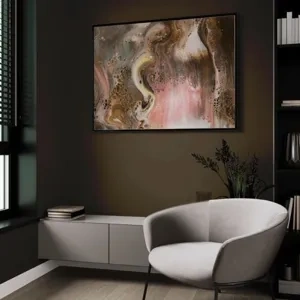
RAL 6008
Brown green
RAL Classic
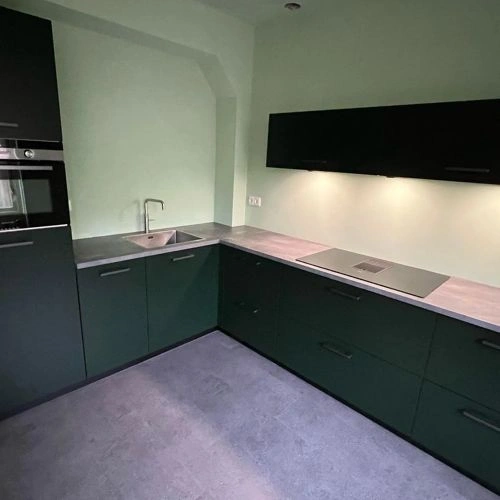
RAL 6007
Bottle green
RAL Classic

RAL 6006
Grey olive
RAL Classic
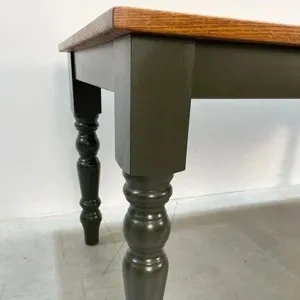
72
Olive Colour
Little Greene
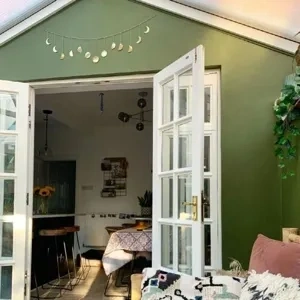
320
Elysian Ground
Little Greene

RAL 6014
Yellow olive
RAL Classic

RAL 6015
Black olive
RAL Classic



